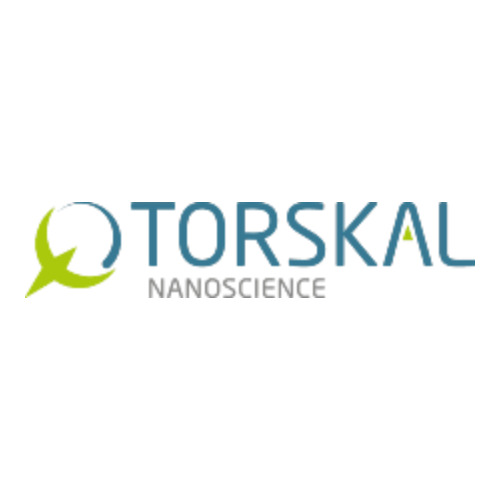


Discover how buying gold nanoparticles works—learn about sourcing, applications, safety, and what to consider for research or industry.
La Réunion, France– July 16, 2025 – As nanotechnology continues to evolve and make its way into mainstream industries, gold nanoparticles have emerged as one of the most critical materials in scientific research and high-tech development. For scientists, biotech companies, and even art conservators, understanding how buying gold nanoparticles works is essential for streamlined operations and innovation. This press release breaks down the buying process, quality considerations, and key applications for gold nanoparticles.
Gold nanoparticles (AuNPs) are small gold particles with a diameter between 1 and 100 nanometers. These particles exhibit unique optical, electronic, and molecular properties that differ significantly from bulk gold. Because of their ability to interact with biological systems and respond to light at the nanoscale, gold nanoparticles are heavily used in fields such as:
Biomedical imaging and diagnostics
Drug delivery systems
Cancer therapy
Electronics and sensors
Environmental monitoring
Art and material preservation
Whether you’re a researcher in a lab or an industrial buyer, purchasing gold nanoparticles involves more than just clicking “add to cart.” Here’s how the process generally works:
Before buying, the first step is to understand your specific application:
Size: Do you need 5nm, 20nm, or 100nm particles?
Shape: Spheres, rods, cages, or stars? Each has unique properties.
Surface Chemistry: Bare particles or functionalized with ligands, PEG, or antibodies?
Concentration & Purity: What level of precision and cleanliness does your experiment or product demand?
Reliable sources of gold nanoparticles include:
Scientific suppliers: Sigma-Aldrich, Cytodiagnostics, NanoComposix
Custom nanomaterial manufacturers: Companies that offer tailored batches
Research institutions: Occasionally offer limited supply under partnerships
Key factors to evaluate:
Certificate of Analysis (COA)
Batch consistency
Sterility or endotoxin-free options for clinical use
ISO certifications and quality controls
The actual buying process typically follows these steps:
Request a quote or order online
Provide documentation, such as institutional credentials, chemical handling licenses, or end-user agreements (depending on country and use case)
Select shipping method, as gold nanoparticles often require cold chain or special handling
Review MSDS/SDS (Material Safety Data Sheets) before delivery
Once delivered:
Inspect the shipment for damage or aggregation
Store as recommended (commonly between 2–8°C in dark conditions)
Use proper handling protocols to maintain stability and integrity
The question isn’t just how to buy, but why gold nanoparticles are being purchased more frequently:
Gold nanoparticles are used as contrast agents in medical imaging and as carriers for drugs in cancer therapy. Their surface can be customized to bind specifically to certain cell types, making them ideal for targeted treatment.
Due to their optical properties, AuNPs are used in rapid diagnostic test kits, such as COVID-19 antigen tests, pregnancy tests, and even environmental biosensors.
In printed electronics and flexible circuits, gold nanoparticles contribute to conductive inks, allowing smaller, faster, and more durable devices.
They are also used in catalysis, water purification, and even gold plating alternatives in manufacturing.
While buying gold nanoparticles may seem straightforward, there are safety and ethical guidelines to follow:
Always buy from certified suppliers.
Use in accordance with regional nanomaterial regulations (e.g., REACH in Europe, EPA in the US).
Ensure waste disposal follows hazardous material standards.
Evaluate ethical sourcing of gold in terms of environmental impact.
According to recent market research, the global gold nanoparticles market is projected to grow from USD 2.1 billion in 2023 to over USD 4.8 billion by 2030. Demand is fueled by rapid advancements in nanomedicine, biotechnology, and next-gen materials.
With this growth comes a greater need for transparency, accessibility, and responsible sourcing when it comes to buying gold nanoparticles.
Dr. Lin Chang, Biomedical Engineer, UCLA:
“The ability to customize gold nanoparticles for drug delivery has changed the trajectory of our research. Knowing where to buy high-quality AuNPs is vital.”
James R., Procurement Manager, NanoTech Ltd.:
“We rely on suppliers who deliver consistent quality and proper documentation. Buying gold nanoparticles isn’t just about price—it’s about performance and trust.”
Start small: Purchase trial kits or small sample sizes.
Consult experts: Speak with supplier support teams about compatibility with your project.
Check storage needs: Some particles require refrigeration or light protection.
Avoid aggregators with vague sourcing: Transparency matters in nanoscience.
So, how does buying gold nanoparticles work? It’s a precise and methodical process involving scientific clarity, quality assurance, and strategic procurement. Whether you’re a cutting-edge biotech startup or a university lab working on the next big breakthrough, knowing how to source and use gold nanoparticles effectively can significantly impact your success.
As the world moves deeper into the age of nanotechnology, gold nanoparticles will continue to shine—literally and figuratively—in medicine, science, and industry.
Media Contact:
NanoSolutions PR Department
Email: [email protected]
Phone: (+262) 262 93 88 31, (+262) 692 72 02 92
Website: https://www.torskal.com
